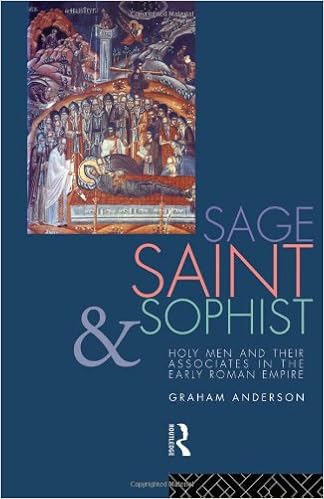Sunday, December 23, 2018
On "The Unnamable" by H. P. Lovecraft (2951 words) ***
This tale moves Lovecraft's work into the American everyday. Essentially a kind of ghost story, the piece revolves around a man trying to convince his inconvincible scientifically minded friend that a particular house is haunted by "the unnamable." Read the story here.
Labels:
2000+ words,
H. P. Lovecraft,
Stories,
Three-Star Stories
On "Daily Life in the New Testament" by James W. Ermatinger ****
This book covers exactly what its title says. What I found most interesting about it, however, was Ermatinger's point of view. Where as Martin Goodman, in his book on Rome and Jerusalem, perceives Roman-Jewish interactions as largely positive with a few trivial skirmishes, and the eventual destruction of the temple as an accidental "mistake," Ermatinger emphasizes the strife between the Romans and the Jews, with the temple's destruction as the fitting climax to this conflict.
Along the way, Ermatinger gives readers a tour of the various peoples living in the Holy Land: what their origins were, what they spoke, what they did for work. He also talks about the expectations for Messiah and how these played out in the eventual conflict. For a book that is part of a series that is generally fairly predefined in its scope and organization, this was actually a very interesting and informative read, more so than I was expecting.
Along the way, Ermatinger gives readers a tour of the various peoples living in the Holy Land: what their origins were, what they spoke, what they did for work. He also talks about the expectations for Messiah and how these played out in the eventual conflict. For a book that is part of a series that is generally fairly predefined in its scope and organization, this was actually a very interesting and informative read, more so than I was expecting.
Saturday, December 22, 2018
On "Dundun" by Denis Johnson (1206 words) ****
It is possible that some people might be more messed up than the character at the center of Denis Johnson's stories in Jesus' Son. Here, that man, looking to be useful to others, gives a ride to a man who is on his way toward death, who has been shot, by a mutual acquaintance. But what the narrator finds is that deep beneath all this trouble, there is kindness, somewhere, inside each of us, even when it never shows. Read the story here.
Labels:
1000+ words,
Denis Johnson,
Four-Star Stories,
Stories
On "Sage, Saint, and Sophist" by Graham Anderson ***
Hoping for a bit more information about itinerant preachers in the first century, I picked up this book. Some information on this subject appeared here, but overall I was disappointed with regard to that. Anderson focuses more on the way in which holy men lived than on the ways in which they spread their message to people who otherwise would not have known of them (today we have TV preachers, but just how did people in the first century pass along their message?). Granted, there is much on spreading the message, but more in terms of how such men were perceived when they made predictions and how they taught disciples than on the situations, the streets, the academies, in which they would have spoken.
Subscribe to:
Posts (Atom)







